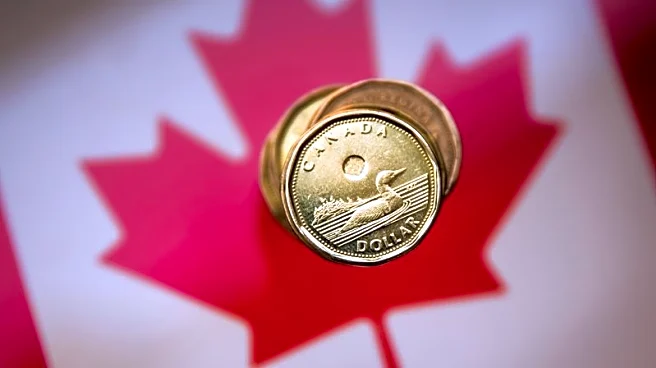By Fergal Smith
TORONTO (Reuters) - The Canadian dollar recouped all of its weekly decline against the U.S. dollar on Friday as Federal Reserve Chair Jerome Powell opened the door to interest rate cuts and Canada made a move to ease trade tensions with the United States.
The loonie was trading 0.7% higher at 1.3815 per U.S. dollar, or 72.39 U.S. cents, putting the currency on track for its largest gain since May 23.
For the week, the loonie was barely changed after it was pressured on Tuesday by cooler-than-expected
domestic inflation data that raised expectations the Bank of Canada would resume its easing campaign over the coming months.
"The CAD had been roughed up somewhat by the USD over the past few days but is heading into the end of the week on a solid rebound following cautiously dovish comments on the policy outlook by Fed Chair Powell at the Jackson Hole symposium," Shaun Osborne and Eric Theoret, strategists at Scotiabank, said in a note.
Powell pointed to a possible interest rate cut at the U.S. central bank's meeting in September but stopped short of committing to it, in remarks acknowledging both the growing risks to the job market and upward pressure on prices from tariffs.
Canada will remove many retaliatory import tariffs on U.S. goods and intensify contacts with the United States on striking a new trade and security relationship, Prime Minister Mark Carney said.
The step could ease pressure on some items in the consumer price index, such as groceries, but also cut into the tariff revenue that the government was expecting, Doug Porter, chief economist at BMO Capital Markets, said in a note.
Canadian shoppers bought more food and beverages in June, which helped lift retail sales by 1.5%, matching expectations. A preliminary estimate for July was less upbeat, showing a decline of 0.8%.
Canadian bond yields moved lower across the curve, tracking moves in U.S. Treasuries. The 10-year was down 5.3 basis points at 3.434%.
(Reporting by Fergal Smith; Editing by Alistair Bell)

















